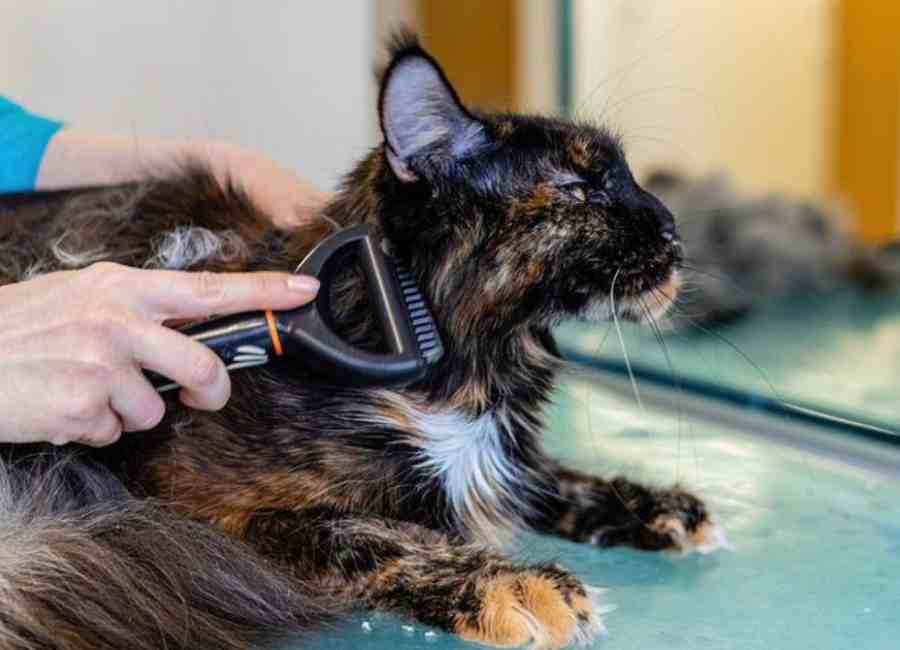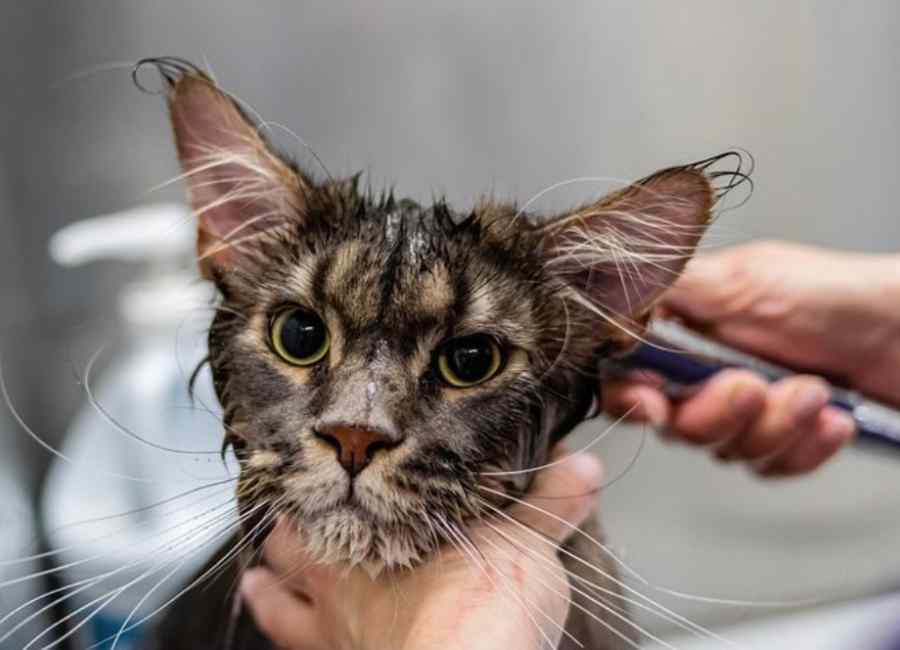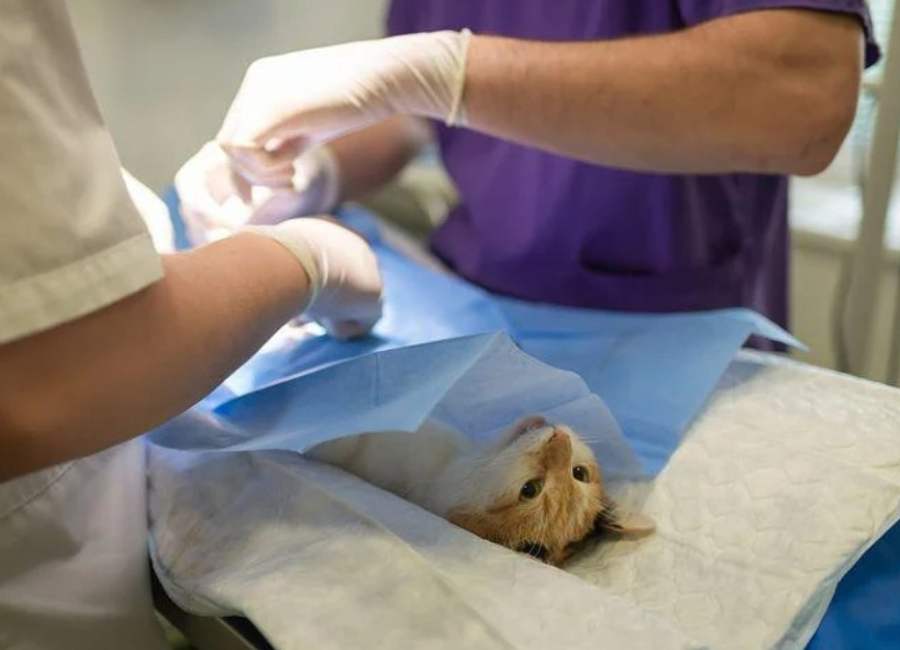19 Top Cat Care Tips You Should Know

This article will extensively look at some common cat care tips every cat owner should know about caring for cats.
Oftentimes how happy and long a cat lives partly depends on the care cat owners offer to their cats.
There are a lot of things that go into cat caring which as an experienced cat owner I will go into detail in this post.
Without wasting much of your time let’s discuss what matters in caring for a cat.
Cat Care Tips
Here are some of the common ways to care for your cat:
1. Regular brushing

The importance of regular brushing of your cat fur can not be overemphasized at any point.
Regularly brushing your cat fur can help to reduce shedding which is unavoidable in cats.
So, to properly care for your cat you should at least brush their fur once per week.
Some fluffy cat breeds will need brushing at least twice per week to avoid fur tangles.
Some advantages of frequently grooming your cat include the following:
- It keeps the condition of your cat’s coat.
- It encourages proper blood circulation in your cat’s skin.
- Regular brushing will let you know if your cat starts to experience skin issues.
- Additionally, it keeps you updated on any bug attacks.
- The hairball issue won’t affect your cat anymore.
- It lessens the circulation of fur around your house.
2. Provide high-quality cat food

Feed your cat on a regular basis with the same amount of high-quality, veterinarian-recommended cat food.
The label of your cat’s food will indicate how much food your cat needs each day. This depends on how much your cat weighs and the age.
If your cat is obese, in particular, ask your vet for advice on how much food to feed them.
A cat that is overweight might need to eat just certain things for a certain amount of time.
Watch how your cat’s body is shaped. In a healthy cat, ribs are felt but not seen.
The ribs of an underfed cat will be visible, whereas the ribs of a well-fed cat will be covered by a massive stomach.
3. Bathe your cat once in a while

Bathing your cat once in a while is also a great way of caring for your cat even though cats groom themselves.
The practice of cat grooming is well recognized.
They can typically maintain themselves fresh and clean on their own without help thanks to their tongues, teeth, and paws.
But occasionally, your cat could need assistance remaining tidy which is a good way to care for them.
Giving your kitty companion a bath could be an excellent option if they have gotten parasites or are covered in anything hazardous, offensive, or sticky.
4. Spend more time with your cat

Cats are animals that do best in a social setting. When their owners merely provide them with minimal attention, they struggle.
Make it a habit to spoil your cat since it’s a wonderful way to show them you care.
When reading or watching TV on the couch, invite your cat to join you.
Play with your cat every day to keep it engaged and content.
Cats occasionally like to snooze in their owners’ beds.
If you’re okay with it, think about letting your cat spend the night in your room.
5. Schedule regular medical check-ups

Like any pets, cats can develop a number of health problems.
Remember regular medical check-ups will help early detection which is very important.
If your cat needs to be checked for any specific problems, talk to your veterinarian.
Cats frequently suffer from glaucoma, bladder stones, heart problems, and various types of cancer.
Your veterinarian may request testing, like blood tests, if they think your cat is at risk for breed-specific diseases.
Your veterinarian will collaborate with you to create a treatment plan if your cat is identified as having a health issue.
6. Deworm your cat once in a while
If your cat’s feeding habits alter in any way, contact your veterinarian right once.
Consult your veterinarian for advice on when to deworm your cat since it may be infected with a number of worms.
Don’t ignore your cat’s vomiting, and if it persists, consult a veterinarian since worms can seriously affect your cat’s digestive system.
The possibility of exposure to worm larvae is one of the reasons you shouldn’t let your cat go outside unattended.
Your cat can vomit when they have a worm as a sign of a worm in a cat. Also, remember cat dewormer side effects so as not to panic.
Read more: How Long After Deworming a Cat Are The Worms Gone? (Answered!!!).
7. Keep your cat litter box clean
Scoop filthy litter often and fully clean the litter box once every day.
My years of living with cats tell me that you should have at least two litter boxes for your cat.
One of the most popular cat care practices is litter box cleaning.
The spread of infections and diseases has been connected to a number of issues, including dirty litter boxes.
The following issues for your cat might arise from a dirty litter box:
- Microorganisms that cause illness include bacterial pathogens.
- An illness brought on by a parasite.
- They are causing mayhem, fleas.
- Create a mess in your own home.
8. Trim your cat claws regularly
Cats love to scratch things when playing and this could hurt you or your kids even though it is not what your cat intends to do.
Regarding how frequently a cat’s nails should be cut, we all had various opinions.
However, based on my encounters with several doctors and direct owners, I advise trimming your cat’s nails once every 4 to 6 weeks.
The length of time depends on how quickly and how long your cat’s claws or crawls grow.
9. Provide scratch post and cat tree
Cat trees and scratching posts might provide your cat a sense of security against an unplanned attack.
You should put one cat tree next to a window so that your cat may climb it and watch birds through the glass windows.
Provide your cat with plenty of opportunities to explore when they become bored, keeping in mind that cats are superb climbers.
Always provide your cat with 1–2 scratch posts, so they won’t use your doors or furniture as scratching posts.
If you don’t already have a cat tree with a scratch post here is the one I recommend.
10. Keep your cat’s vaccines up to date
Respect regional limits and your vet’s advice regarding immunizations to keep your cat healthy.
Vaccinations should start at 5-8 weeks of age and should be repeated every 3-4 weeks until the kitten is 4 months old, as recommended by your veterinarian.
Remember that these shots shield your kitten from calicivirus, rabies, feline viral rhinotracheitis, and feline distemper.
Keep in mind that a cat with vaccinations is healthier and less prone to disease or pest infestation.
Always ask a veterinary expert for guidance.
11. Keep your cat teeth clean
It’s not a terrible idea to make brushing your cat’s teeth into a weekly ritual for you. This is because some cats are prone to dental issues.
The easiest way to do this is to treat the toothbrush like a toy and let the cat become used to it.
Give your cat time to learn each stage of the brushing process before going on to the next.
Start by lifting her lip, then clean her teeth, spreading a glob of cat toothpaste on the brush, and swishing the brush up and down in the water.
Never put human toothpaste on your cat since it contains a lot of fluorides and may harm them if they ate it.
Ask your veterinarian about the best toothpaste.
12. Provide clean drinking water for your cat
Providing clean drinking water for your cat helps to avoid unnecessary dehydration.
Give your cat access to a separate, spotless bowl of water that they may use whenever they wish.
Refill the water, clean the bowl, and replenish as necessary at least once per day.
To prevent dirt gathering, never position your cat’s water bowl next to the door.
13. Provide a stress-free environment
To prevent your cat from unnecessarily becoming hostile and territorial, keep the surroundings stress-free.
Do not make loud noises and make sure your cat has everything he or she needs.
Avoid yelling at your cat or making any significant adjustments to your daily schedule or environment.
Feeding and playtime should be given at the very least once every day.
14. Provide engaging and interactive toys
Provide your cat with some toys in the form of mice to keep them occupied and interested.
You should seek toys that will assist your cat to learn how to capture mice because cats are recognized for having great mouse-catching abilities.
Keep your cat’s toys low on the ground since cats have a lot of energy.
More toys will make them happier and healthier, so give them more.
The top three most popular cat toys are shown below:
- Catit Design Senses Play Circuit, Value Bundle.
- PetSafe Bolt – Laser Pointer Cat Toy / Dog Toy – Automatic Cat Laser Toy
- Cat toys.
15. Keep your cat indoors
The number of predators in a region affects how long a cat may stay there; the worse the number of predators, the worse the cat’s chances of surviving.
On the other hand, a cat has a better chance of surviving if there are fewer predators in that location.
A house cat that wanders into the woods will undoubtedly perish if there are wolves in the neighborhood who are hungry.
Always keep your cat indoors even when they want to go outside, and take every precaution to keep him from fleeing.
Read more: How to Stop a Cat from Wanting to go Outside: 11 Effective Tips to Try.
16. Exercise your cat
Most cats like playing with balls, and they may engage in a game of fetch if you throw one for them.
They will be able to get the daily activity they need thanks to this.
Make sure your cat engages in at least 15 minutes of physical activity each day to promote healthy blood circulation.
Give your cat a daily workout even if it is in your backyard so that he may relax enough to sleep well without feeling nervous.
17. Keep your cat ear clean
A thorough cleaning of your cat’s ears is necessary once in a while to avoid ear issues.
The majority of cat ears are clogged with dirt and other debris which can become a serious issue.
Make sure your cat is not wounded when you clean its ears.
When your cat lets you wipe out its ear, always reward it with goodies.
Always use a clean cloth soaked in warm water to clean your kitten’s ears, or use a veterinarian-recommended ear cleaner.
Carefully cleaning them is required. On YouTube, there are several videos showing how to clean a cat’s ear.
18. Provide a hygienic environment for your cat
Many avoidable health issues with cats are avoided in a sanitary setting.
Make sure the surroundings are clear of any parasites or bacteria pathogens, including fleas and worms.
Avoid keeping standing water around your home, and make sure no cat-repelling plants are present.
Close any doors or windows where a cat predator may come into your home and hunt your cat.
19. Spay or neuter your cat
Both male and female cats can have reproductive illnesses.
In contrast to neutering, which protects male cats from testicular cancer and some prostate issues.
Spaying protects female cats from uterine infections, ovarian malignancies, and breast tumors.
The procedures also lessen a male cat’s desire to travel and, if carried out early enough in life, may take away his desire to spray to demarcate territory.
Finally…
Taking good care of your cat ensures that your cat lives longer and happier.
I hope these cat care tips discussed on this page give you an insight into how to care for your cat.






